Mastering the Basics of Contract Management
Contract management plays a pivotal role in ensuring smooth operations and successful outcomes for your school or multi-academy trust.
From procurement regulations to risk assessment, compliance, and performance monitoring, every step in the contract management process requires attention to detail and a proactive approach.
In this blog post, we will delve into the key insights shared during our recent webinar on the basics of good contract management, providing you with valuable strategies to enhance your school’s contract management practices.
Watch the full webinar recording here:
Understanding the barriers to effective contract management
Some of the barriers could be; limited resources, complex procurement regulations, fragmented data, limited contract visibility and monitoring contracts.
A poll during the webinar revealed, limited resources as the biggest challenge for their schools, followed by complex procurement regulations and finally fragmented data and documentation. Recognising these barriers is crucial, as it allows your school to address them proactively and implement strategies to overcome them.
Mitigating risks: A key focus in contract management
Managing risks associated with contracts is a critical aspect of contract management.
Martin Evans, the Head of Procurement from Greenshaw Learning Trust shared valuable insights on how his Trust assesses and mitigates potential risks. By focusing on contract analysis and establishing consistent procedures, his Trust ensures that contractors deliver according to their key aims.
This proactive approach includes regular meetings with contractors and building strong relationships to maintain accountability and deliver consistent results.
Ensuring compliance: Contract requirements and legislation
Staying in line with both contract requirements and legislation is essential for successful contract management. Zoe Lloyd Jones, our expert in contract management, highlighted the significance of good procurement practices in ensuring compliance.
Focusing on regulatory requirements, developing comprehensive policies and procedures aligned with those requirements, and incorporating compliance clauses into contracts are all key steps.
“Keeping contracts in plain English is crucial, making them easily understandable for all stakeholders involved.” reveals Zoe.
Effective monitoring for successful contract fulfilment
Monitoring the performance of contracts is a vital responsibility to ensure that obligations are met effectively.
Martin emphasised the importance of proactive management throughout the contract term, “Schools can set expectations upfront by establishing clear service level agreements (SLAs) during the procurement process. Regular contract management meetings and maintaining a strong focus on the agreed-upon SLAs help grow positive relationships with suppliers.”
This ongoing monitoring and communication ensures that the contract remains beneficial to both parties.
Navigating contract negotiations and variations
Contract negotiations and variations can be complex tasks, but they play a vital role in ensuring your contracts success.
Martin stressed the significance of specifying requirements and assessing risk levels upfront to facilitate smoother negotiations. It is essential to involve key stakeholders to ensure their input and expertise.
Additionally, understanding non-negotiable aspects of the contract and seeking legal advice when necessary contribute to a robust negotiation process. Contract variations should be carefully considered, ensuring they align with the contract’s scope and comply with regulatory requirements.
Streamlining contract renewal and expiry processes
To minimise disruptions and achieve a zero-rolling-contract goal, your school or multi-academy trust should establish a streamlined contract renewal and expiry process.
Regularly reviewing contracts, assessing their applicability, value, and involving key stakeholders are vital steps. Maintaining an organised contract register and tracking expiry dates helps avoid unexpected renewals or breaches of regulations.
In conclusion, mastering the basics of contract management requires a proactive approach, clear communication, and careful attention to detail. By understanding the barriers, mitigating risks, ensuring compliance, effectively monitoring contracts, and navigating negotiations and variations, organisations can enhance their contract management practices.
Remember, contract management is a continuous process that demands ongoing evaluation, adaptation, and strategic decision-making. By implementing the strategies outlined in this blog post, you can establish a strong foundation for successful contract management within your school.
If you would like support on your contract management process, click here to see all the ways in which our procurement experts can help you.





